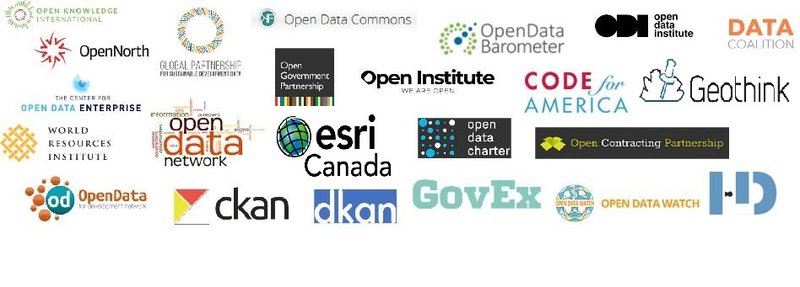Resources

We've identified the most useful resources for understanding, managing, providing, and orchestrating open data initiatives—with emphasis on rural regions. Explore resources through the following categories:
Open Data Primers | Community Primers | Tools | Standards | Major Organizations | Open Data Portals
Open Data Handbook
This guide covers the legal, social and technical aspects of open data. It is particularly aimed at those who are seeking to open data with in their organisations; discussing the why, what, and how of open data.
Open Government Data: The Book
By Joshua Tauberer. Second Edition: 2014. The principles, practices, and a history of the open government data movement.
Open Data Impact Map
This tool was developed to provide governments, international organizations, and researchers with a more comprehensive understanding of the demand for open data.
Open Data Watch
An international organization that works at the junction of open data and official statistics, monitoring open data policies, measuring their success and impact, sharing knowledge, building partnerships, and offering strategic advice and practical assistance to national governments, international organizations, and other NGOs.
Open Data Barometer
Analyses global trends and provides comparative data on governments and regions using an in-depth methodology that combines contextual data, technical assessments and secondary indicators.
G20/OECD Good Practices
This compendium of good practices was prepared by the OECD at the request of the G20 Anti-corruption Working Group (ACWG), to raise awareness of the benefits of open data policies and initiatives.
GODAN
GODAN (Global Open Data for Agriculture and Nutrition) seeks to support global efforts to make agricultural and nutritionally relevant data available, accessible, and usable for unrestricted use worldwide.
Open Data Standards Directory
An open data standard is a set of specifications for how some sets of data should be made publicly available. Like the data they describe, open data standards are generally developed “in the open”, meaning that anyone who is interested has a way to contribute.
ckan
ckan (Comprehensive Knowledge Archive Network) is an open source data management system, providing tools to streamline publishing, sharing, finding and using data. Instances of ckan include Canada’s Open Government Portal, the BC Data Catalogue, the Alberta Open Government Portal, and the cities of Surrey, Ottawa, Toronto, and Montreal.
dkan
dkan is a Drupal-based, community-driven, free and open source open data platform that gives organizations and individuals ultimate freedom to publish and consume structured information.
Open Government Partnership
Bringing together government reformers and civil society leaders to create action plans that make governments more inclusive, responsive and accountable.
Code for America
A network of people making government work for the people, by the people, in the 21st century.
Open Contracting Partnership
Working across sectors and along the whole process of government contracting to use the power of open data to save governments money and time, deliver better goods and services for citizens, prevent corruption, and to create a better business environment for all.
Open Data Commons
The home of a set of legal tools for providing and using open data. It is a project of the Open Knowledge Foundation.
Open Guide
These guidelines provide context about the Open Government Licence with specific instructions for each clause. The guidelines also include a template of the full licence text for easy conversion to the web.
Google Dataset Search (Beta)
Dataset Search enables users to find datasets stored across the Web through a simple keyword search. The tool surfaces information about datasets hosted in thousands of repositories across the Web, making these datasets universally accessible and useful.
OGP Toolbox
The objective of the OGP Toolbox is to empower public, private and civil society actors worldwide by sharing digital tools and resources, in order to promote democracy, transparency, participation and collaboration.
FAST
Meeting the need for a
simplified indexing schema, FAST (Faceted Application of Subject Terminology) is derived from the
Library of Congress Subject Headings (LCSH), one of the world's most widely-used subject terminology schemas.
ArcGIS Hub
ArcGIS Hub provides a two-way engagement platform to connect government and citizens.
The Open Database of Buildings
A collection of open data on buildings and building footprints, made available under the Open Government License -- Canada.